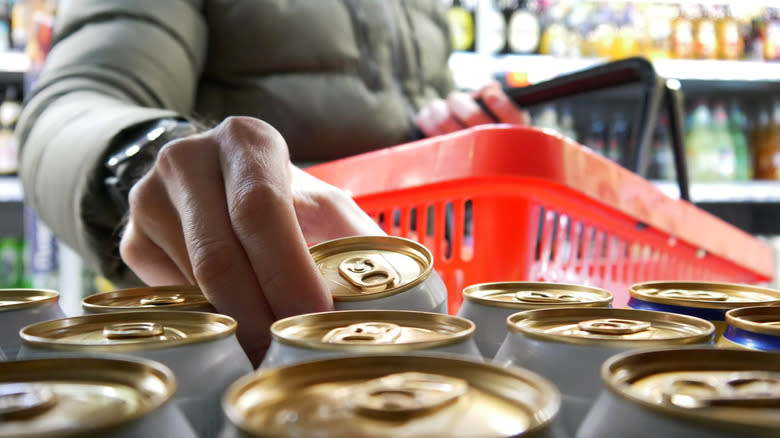Over 240 Canned Coffee Products Recalled Amid Botulinum Toxin Fears

Snapchill LLC is voluntarily recalling a vast array of their canned coffee products, according to the U.S. Food and Drug Administration (FDA), because the bottling process they currently use leaves their drinks vulnerable to botulinum toxin production. Over 240 products from 128 individual coffee roasting companies are affected. So far, no instances of botulism poisoning have been reported, but Snapchill recommends destroying any product involved in the recall or returning it to the place of purchase. You can identify Snapchill bottled drinks on beverage labels -- the metal cans containing 7 to 12 ounces of coffee are labeled under the nutrition facts panel with the words "produced and distributed by Snapchill LLC" or "Snapchill Coffee," according to the FDA.
Botulinum toxin is a very serious source of food poisoning, caused by one of the most deadly neurotoxins. If you think you've consumed any of the affected coffee, the Centers for Disease Control and Prevention (CDC) recommends getting medical assistance right away. The clostridium botulinum bacteria thrives in low oxygen environments such as canned and bottled foods unless the acidity of the food or beverage is below the pH 4.6. Snapchill failed to file their bottling process for maintaining that low acid environment with the FDA, leaving the coffee drinks potentially vulnerable to the growth of toxin-producing bacterial spores.
Read more: 31 Popular Coffee Brands, Ranked
There's No Such Thing As Being Too Careful When It Comes To Preserved And Bottled Foods

The Snapchill recall reflects tight regulations on the food packing industry, which was put into place following a deadly exposure to botulism in poorly canned olives in 1919. The CDC says most botulism exposures are actually due to home processed foods, which can be extremely hazardous if proper guidelines aren't followed. Homemade flavored oils and oil cured foods should always be refrigerated for maximum safety, for example. Foods preserved in commercial kitchens without safety protocols could also be potentially hazardous. In 2023, an outbreak of botulism poisoning due to carelessly preserved sardines at a restaurant killed one person and sickened many more in France.
It's important to know there are no smells or tastes associated with botulism poisoning, but some signs that bacteria are growing in canned food are bulging of the can or bottle tops, as well as leakage from the container. As always, any obvious signs of spoilage like mold or discoloration are another sign to toss out canned foods.
Read the original article on Tasting Table.

